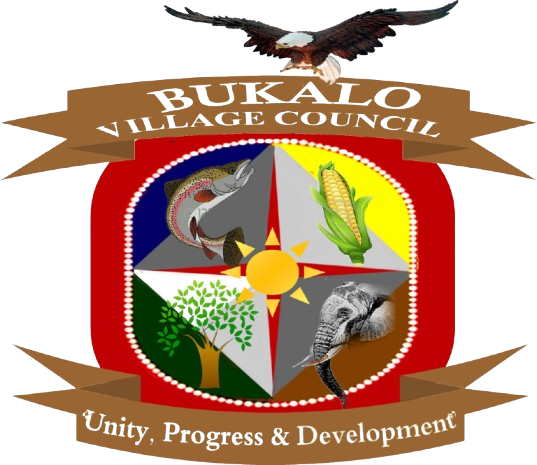Leaders Always Look Toward
The Future.
Bukalo is a village in Namibia. It is located in the Zambezi Region, 43 kilometres southeast of Katima Mulilo, the regional capital. Bukalo is also the royal headquarters of the Subia people. It serves as the administrative centre of the Katima Mulilo Rural Constituency. As of 2023, Bukalo has a population of approximately 1,935.
The name Bukalo means settlement in Chikuhane, the language of the Subia people. It reflects the early days when the area served as a royal homestead before it was formalised as a village.
Bukalo has long been a settlement of the Subia people, a Bantu-speaking group native to southern Africa. The Subia are a tribe of the larger Lozi ethnic group, with significant populations in Botswana, Namibia, and Zambia.
Under the leadership of King Lilundu Lituu (1640–1665), who succeeded his father King Ikuhane, the Subia migrated from the Chobe River southwards and settled in present-day Botswana. In 1876, Mwanamwale and a group of Subia men crossed the Zambezi River and established his leadership at Sesheke in Zambia. King Mutwa Liswani II (1965–1996) later established his royal palace at Bukalo in Namibia. To this day, Bukalo remains the royal headquarters of the Subia people—a centre of traditional governance where cultural events, royal ceremonies, and public meetings take place.
Culture and Language
The majority of Bukalo’s population are Subia, a subgroup of the Lozi people. The main language spoken is known as Chikuhane or Chisubia, although Silozi is widely understood and used as a lingua franca. The village hosts traditional ceremonies that showcase Subia dances, attire, and ancestral practices. As the seat of the royal palace, Bukalo plays a key role in preserving Subia customs and uniting Subia communities across Namibia, Zambia, and Botswana.
Governance
In 2013, the Government of Namibia under former President Hifikepunye Pohamba granted Bukalo official village status. Following its proclamation, the Bukalo Village Council was established to oversee local governance and development.
The council is made up of elected councillors and is supported by a Chief Executive Officer, Anna Ntwala Sazita, who manages the village’s administration. The council is responsible for infrastructure development, land allocation, water services, and coordination with regional and traditional leaders.

Masubia Traditional Authority

Bukalo Open Market

Bukalo Floodplains

